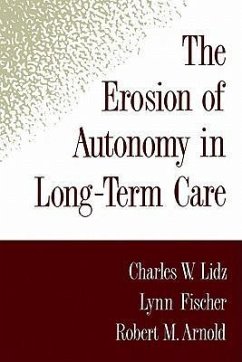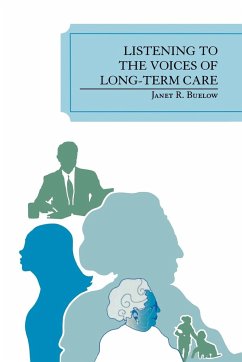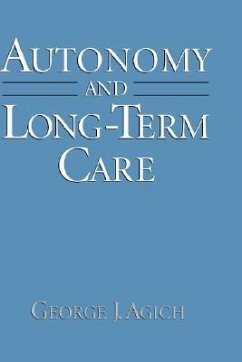
The Heart of Long-Term Care
Versandkostenfrei!
Versandfertig in 1-2 Wochen
82,99 €
inkl. MwSt.

PAYBACK Punkte
41 °P sammeln!
Long-term care in the United States has taken the nursing home as its benchmark, but the monetary, social, and psychological costs of nursing home care are all too high. This book challenges the current dominance of nursing homes as the principal institution of long-term care. It offers a series of alternative models where both services and housing can be provided in a way that allows long-term consumers to enjoy dignified, "normal" lifestyles. It addresses the political and economic consequences of making this decision. The authors start with the premise that long-term care is designed to ass...
Long-term care in the United States has taken the nursing home as its benchmark, but the monetary, social, and psychological costs of nursing home care are all too high. This book challenges the current dominance of nursing homes as the principal institution of long-term care. It offers a series of alternative models where both services and housing can be provided in a way that allows long-term consumers to enjoy dignified, "normal" lifestyles. It addresses the political and economic consequences of making this decision. The authors start with the premise that long-term care is designed to assist people who lack the capacity to function fully independently. They argue that no disabled person of any age should be required to forsake his/her humanity in exchange for care. The book rejects the artificial dichotomy between social and medical care, asserting that both play important roles in psychological and physical well-being of long-term care patients. The authors consider the need for competent and compassionate medicine and discuss the methods for improving both its coordination of care and its effectiveness. The book redefines the meaning of safety and protection in long-term care, and how this goal can be accomplished without sacrificing quality of living. As the new millennium and the aging of baby boomers approaches, more creative approaches to providing better long-term care are required. This volume outlines a useful framework for the provision of effective and humane community-based programs that are both feasible and affordable. It will be an invaluable guide for geriatricians, public health professionals, family physicians, nurses and others who care forelderly patients.














